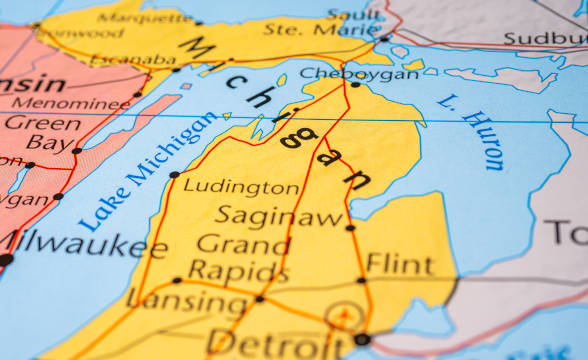Financial reports from Michigan’s tribal and commercial operators showed a recovery in the state’s gambling market, which was on the decline for the past three months. July’s gross online gaming revenue increased 8% compared to the previous month, reaching $148.2 million. The sum also marks a 32.4% year-to-year increase, alleviating concerns that the negative trend would keep accelerating.
Sports Betting Grew Year to Year despite Monthly Drop
The increase in revenue is also welcome news to the state coffers as online operators contributed $24.9 million in taxes. iGaming accounted for $24.1 million, while the remaining $815,000 came from sports betting taxes and fees. Michigan’s three licensed casinos were charged $6.9 million, while tribal operators paid governing bodies $2.7 million.
Despite positive growth in most sectors, July’s sports betting handle dropped to its lowest since last summer at $206.1 million. This number is а stark 23% drop compared to the previous month, mirroring a similar trend in sportsbooks across the USA, as the summer usually marks a cooldown in betting activity. Despite the weaker results, July’s total sports betting handle is still well above 2021’s $188 million for the same month.
Top Online Operators Experienced Little Disturbance
Among individual sports betting operators in the Great Lake State, FanDuel barely managed to hold on to first place with a handle of $60.1 million. DraftKings followed closely with $57.5 million, while BetMGM rounded out the top three at $44.6 million. Caesars claimed the fourth spot with $15.4 million, finally surpassing Barstool, which made $13.1 million.
The remaining Michigan online sportsbooks scored significantly lower, with PointsBet leading the rest of the pack at $4.3 million. The top three operators represent more than 78% of the market, but July’s decline hit everybody more or less equally, so there was little disturbance in the sector.
Michigan Is Still on Its Way to Overtaking New Jersey
Michigan’s recent growth puts it back on its way to surpassing New Jersey New in terms of online gambling profits. In the first half of the year, New Jersey recorded revenue of slightly over $800,000, while Michigan was hot on its heels with $750,000. This number represents significant growth for the Great Lake State, especially considering online gambling has only been legal there since 2021. In contrast, New Jersey regulated online operators in 2013.
Financial results bode well for Michigan’s relatively young online gambling industry despite the global inflation crisis, the possible upcoming recession, and the slow summer sportsbook calendar. The real test for the state’s burgeoning gambling sector will be the coming World Cup, which will be a huge opportunity for operators to attract new clients.



